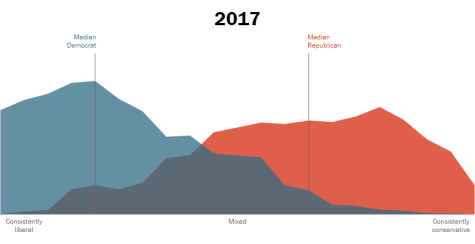Being a First-Generation American

Ms. Ragghianti’s class working hard.
February 13, 2019
For centuries people have immigrated to America for different reasons. While some families have been here for generations, others have yet to arrive. A first-generation American is a person born in the United States with at least one parent who has immigrated from another country.
Growing up a first-generation American has its differences than growing up fully immersed in American culture. Many first-generation Americans speak more than one language. Mackenzie Morgan, a junior at BDHS, said “Growing up we only spoke German at home. As we got older it changed to English.” To a lot of people the ability to speak more than one language puts first-generation Americans at an advantage in the workplace.
Another difference is the expectations parents have for their first-generation children. Some parents care more about athletic achievements while others care more about academics; it depends on the culture. Maame Serwah Anobah-Manteaw said, “My parents care a lot about my grades and schoolwork.” She, along with others, is expected to keep a high grade point average (GPA).
Often in the American culture, parents are more lenient. For example, in the American culture many parents are okay with and expect their child to leave for college at eighteen. In many Hispanic-American homes, this milestone is seen as a split between the family and brings sadness instead of celebration.
While there are many advantages to being a first-generation American, there are also difficulties. According to the Migration Policy Institute,
65 percent of first-generation Americans feel that they do not fit in anywhere.
— Migration Policy Institute
When visiting foreign family, they are known as “the American” and while in America they feel as if they are “not American.” Mackenzie Morgan says that while visiting family in Germany she is known as “the Ami” which is slang in German for “the American.”
Another reason first-generation Americans feel this way may be lunchbox shaming. Lunchbox shaming is a form of bullying that is most prominent in school cafeterias. The victims of this often feel embarrassed or self-conscious to pull out their home cooked cultural meals. Parents report that their children get bullied or shamed by others because the food they eat isn’t something the other kids are used to seeing.
Celebrations are a big part of many cultures. First-generation Americans often consider themselves lucky to be able to take part in some of these unique cultural celebrations. Examples of popular celebrations are Quinceañeras, Day of the Dead, Eid Mubarak, and the Chinese Lunar New Year.
Growing up, plenty of first-generation American’s parents told them stories. The stories were about what life was like before they immigrated, why they immigrated, and how they lived their childhood. Some stories may be about happy memories while others may be about the hardships of growing up in their country.
These stories have touched the hearts of several people and even shaped some to be who they are today. Stories like the ones immigrants tell their children give them inspiration to work hard towards what many know as, “The American Dream.”
A common reason immigrants migrate to America is to live a better life full of opportunities. Numerous amounts of first-generation Americans strive everyday to live the life their parents worked for them to have. They do this while keeping their pride for their country and their strong cultural heritage.











Phil • Jun 14, 2021 at 11:41 pm
The definition of “first-generation American” has gradually changed due to collective misunderstanding, I think. I attended school nearly 35 years ago, and at the time, it was generally understood that to be first-generation doesn’t mean what you say in the third sentence of the article.
At the time, it was generally understood that a first-generation American was an immigrant, explicitly someone not born in the US. They were the first to come to America, after all, hence the name. Their children would be second-generation, and the grandkids would be third-generation. Therefore, the first people in that family lineage to be born in the US are the second generation to be physically IN the US — a somewhat confusing state of nomenclature, which is what led to the current trouble.
But, if we think about it logically, it’s pretty clear that the parents must be numbered as the first generation, else what other number could they claim? Suppose for the sake of argument that an immigrant never has any children. That is a valid and increasingly common life choice for many all over the world, after all. If there ARE no children, then what is the immigrant generation to be called? The “Zero Generation” — and then that’s the end of it? In that case, the immigrant has been completely written out of the history.
By the same token, even if they have kids, if you designate those native-born kids as the first generation, then you’re back in the same position of the parents not having a generation, or some awkward phraseology such as “Zero Generation”, which seems pejorative and generally unfeasible on multiple levels.
In order for a child to be born in the US, their mother must, by definition, already be in the US. That pre-existing presence in the US entitles them to their own enumeration as putative Americans or Americans-to-be. They must be acknowledged as the First Generation. Nothing else makes logical sense.